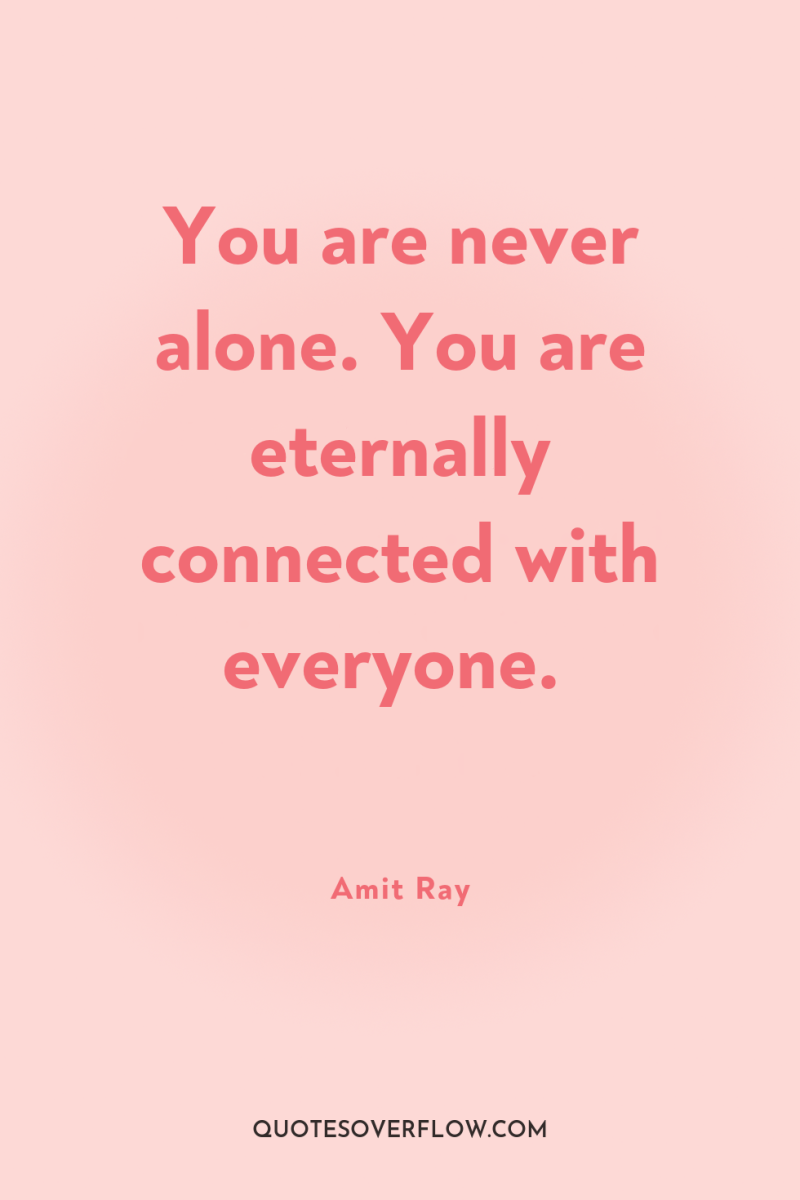
1
You are never alone. You are eternally connected with everyone.Amit Ray
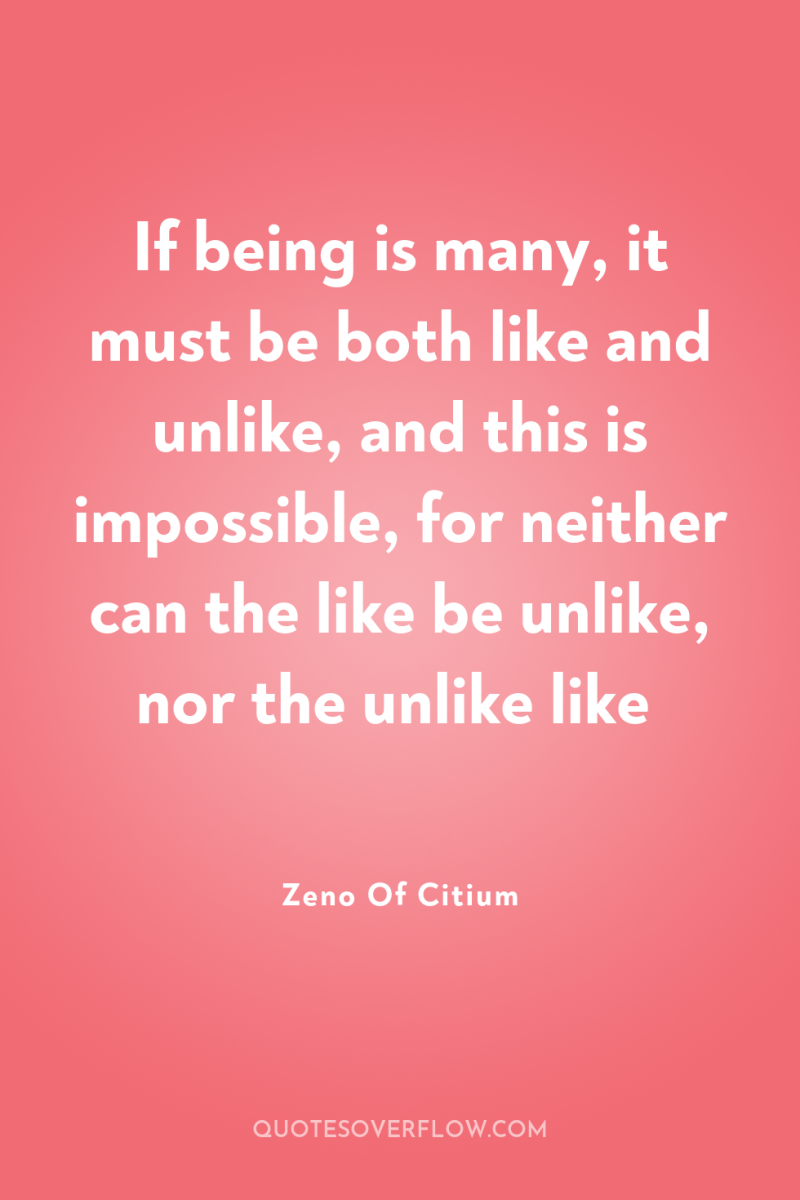
2
If being is many, it must be both like and unlike, and this is impossible, for neither can the like be unlike, nor the unlike likeZeno Of Citium

3
God is peace, bliss, beauty and truth. Focus your energy on that, life will be like that.Amit Ray
4
Never say, "O Lord, I am a miserable sinner." Who will help you? You are the help of the universe. What in this universe can help you? What can prevail over you? You are the God of the universe; where can you seek for help? Never help came from anywhere but from yourself. In your ignorance, every prayer that you made and that was answered, you thought was answered by some Being, but you answered the prayer yourself unknowingly. The help came from yourself, and you fondly imagined that someone was sending help to you. There is no help for you outside of yourself; you are the creator of the universe. Like the silkworm, you have built a cocoon around yourself. Who will save you? Burst your own cocoon and come out as a beautiful butterfly, as the free soul. Then alone you will see Truth.Swami Vivekananda
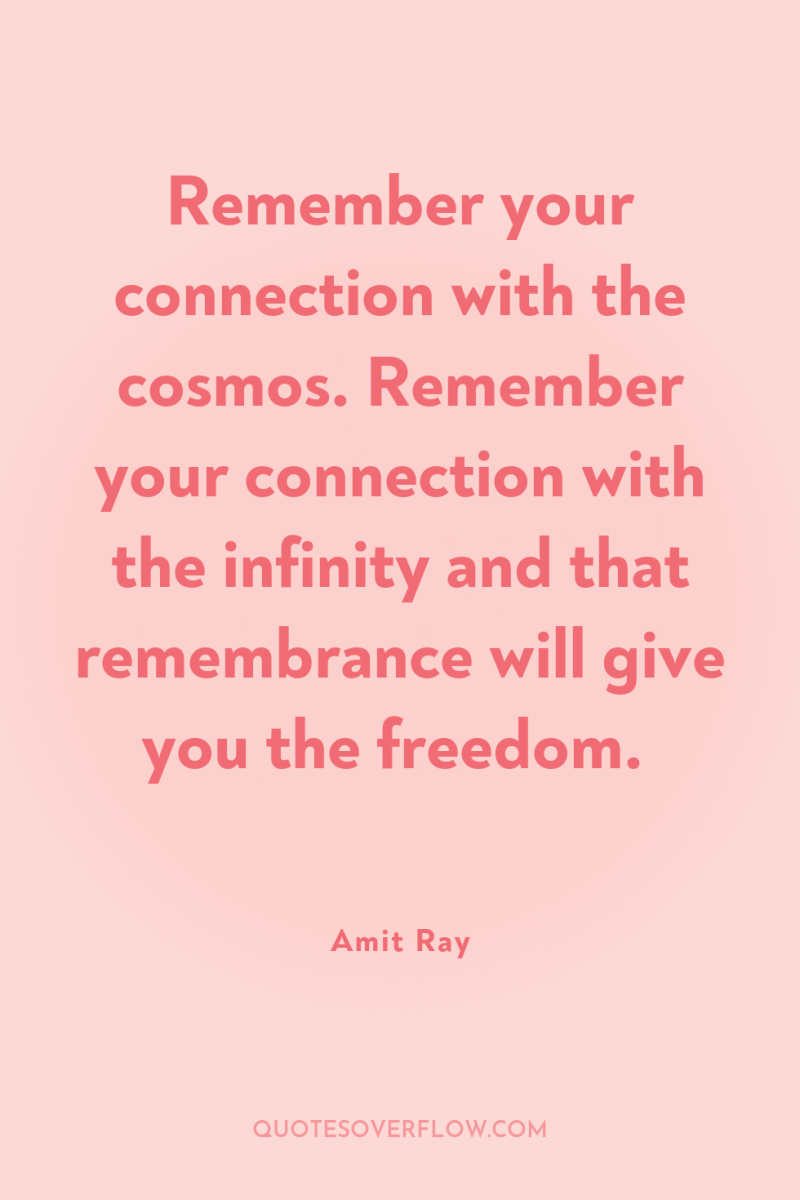
5
Remember your connection with the cosmos. Remember your connection with the infinity and that remembrance will give you the freedom.Amit Ray
6
Om is not just a sound or vibration. It is not just a symbol. It is the entire cosmos, whatever we can see, touch, hear and feel. Moreover, it is all that is within our perception and all that is beyond our perception. It is the core of our very existence. If you think of Om only as a sound, a technique or a symbol of the Divine, you will miss it altogether. Om is the mysterious cosmic energy that is the substratum of all the things and all the beings of the entire universe. It is an eternal song of the Divine. It is continuously resounding in silence on the background of everything that exists.Amit Ray
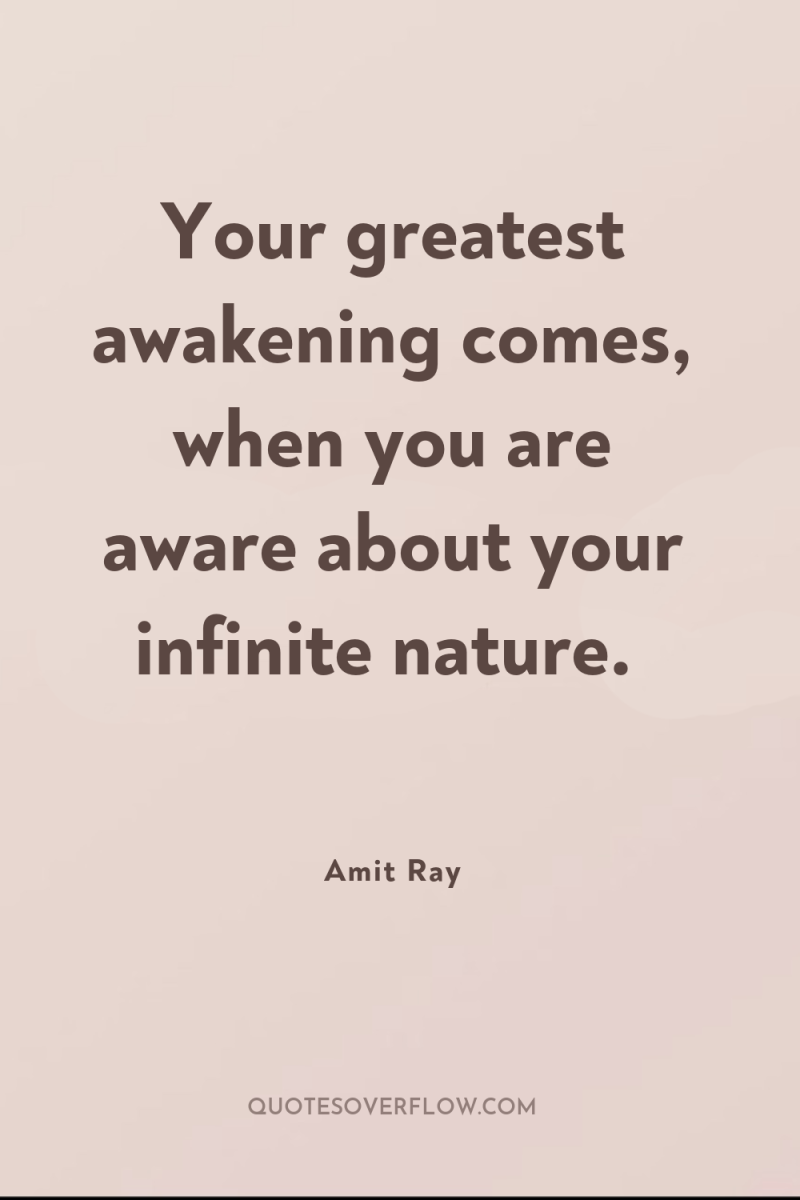
7
Your greatest awakening comes, when you are aware about your infinite nature.Amit Ray
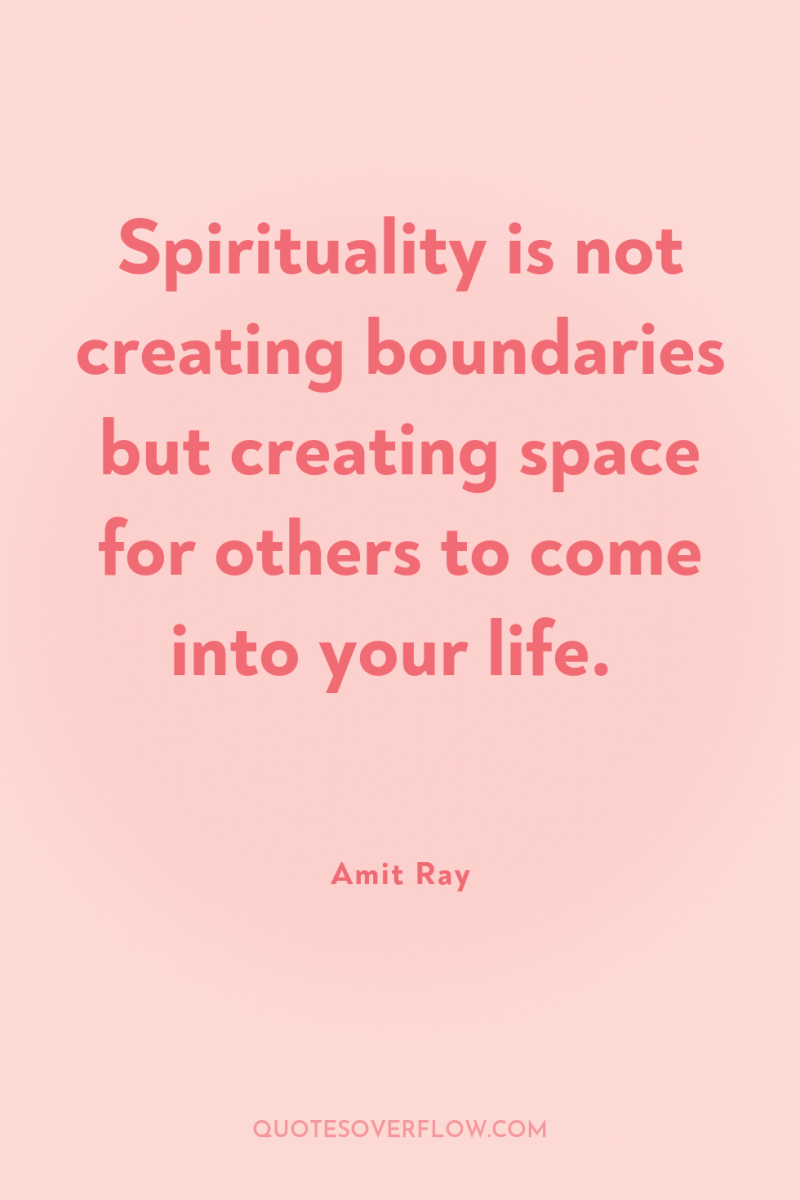
8
Spirituality is not creating boundaries but creating space for others to come into your life.Amit Ray
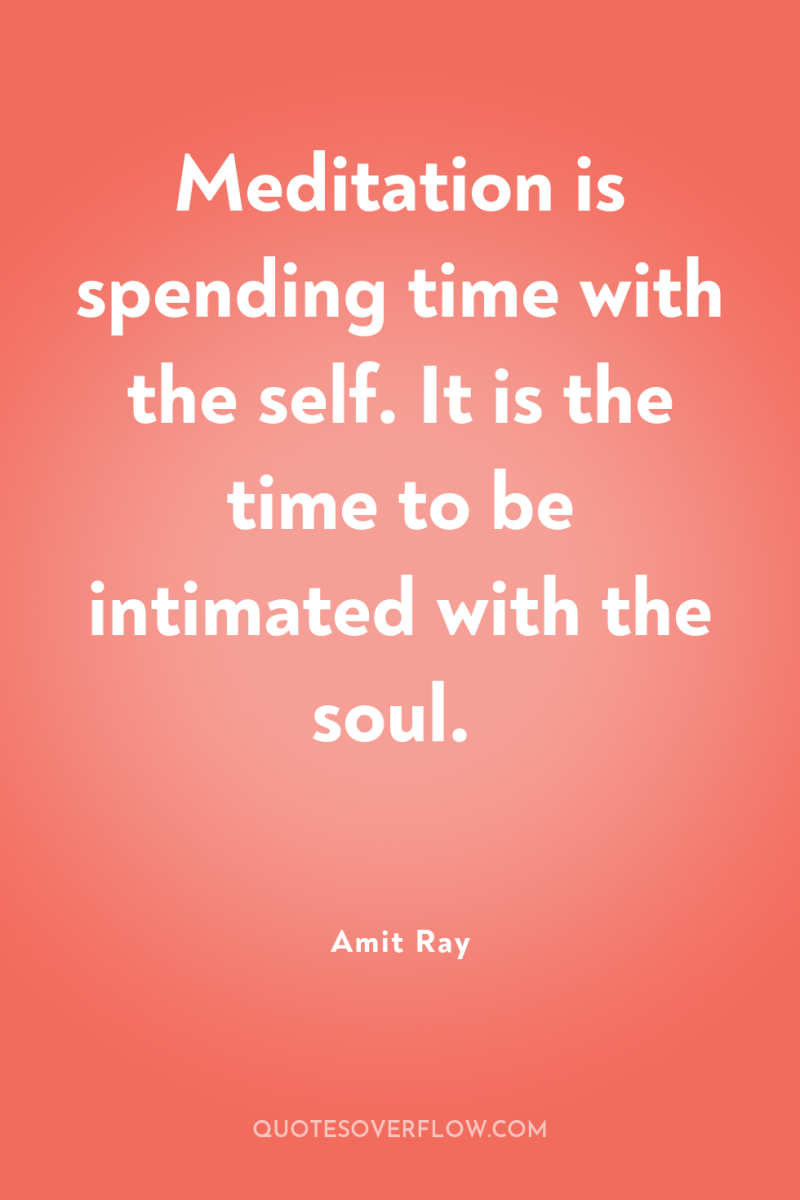
9
Meditation is spending time with the self. It is the time to be intimated with the soul.Amit Ray
10
Universe is an empty mirror. Life is just the reflection of your deep thoughts.Amit Ray
11
The true essence of vedanta focuses upon subject rather than object.Pawan Parashar
12
The path of awakening" All of your past selves are walking behind you, like a shadow, waiting for you to awaken fully. Waiting for you to return home. To the Oneness. To love, wisdom, silence and compassion. The child you once were is still with you. It is waiting to receive the unconditional love and acceptance which it has always wanted which will finally heal it, calm itand enable it to relax and surrender into the vastness of your Being.Into the light of consciousness. And it is not just the child who is walking behind you. All the identities from past incarnations are still with you. The seeker. The pirate. The highwayman. The sage..Unknown
13
In our life there is one side which is finite and another side which is infinite. I want you to think about both the sides and design the best life and stand in their true values.Amit Ray
14
No self is of itself alone. It has a long chain of intellectual ancestors. The "I" is chained to ancestry by many factors… This is not mere allegory, but an eternal memory.Unknown
15
What is this 'I'? If you analyse it closely you will, I think, find that it is just a little bit more than a collection of single data (experiences and memories), namely the canvas upon which they are collected. And you will, on close introspection, find that what you really mean by 'I' is that ground-stuff upon which they are collected. You may come to a distant country, lose sight of all your friends, may all but forget them; you acquire new friends, you share life with them as intensely as you ever did with your old ones. Less and less important will become the fact that, while living your new life, you still recollect the old one. 'The youth that was I', you may come to speak of him in the third person, indeed the protagonist of the novel you are reading is probably nearer to your heart, certainly more intensely alive and better known to you. Yet there has been no intermediate break, no death. And even if a skilled hypnotist succeeded in blotting out entirely all your earlier reminiscences, you would not find that he had killed you. In no case is there a loss of personal existence to deplore. Nor will there ever be.Unknown
16
Ayurveda teaches us to love "as is" - not as we think people "should be.Lissa Coffey
17
No Self stands alone. Behind it stretches an immense chain of physical and - as a special class within the whole - mental events, to which it belongs as a reacting member and which it carries on. Through the condition at any moment of its somatic, especially its cerebral system, and through education, and tradition, by word, by writing, by monument, by manners, by a way of life, by a newly shaped environment.. by so much that a thousand words would not exhaust it, by all that, I say, the Self is not so much linked with what happened to its ancestors, it is not so much the product, and merely the product, of all that, but rather, in the strictest sense of the word, the SAME THING as all that: the strict, direct continuation of it, just as the Self aged fifty is the continuation of the Self aged forty. .Unknown
18
Awareness is Brahman. The absolute cosmic consciousness. When you are aware, you are connected with Brahman.Banani Ray
19
What do you mean by ‘Divine Consciousness’? It is achieving the knowledge of oneness, i.e., to know that outside we are many but inside all are one.‘ Vedanta’ mentioned about ‘oneness’, but could not say what is oneness. When I am saying that I am a living being all your Vedanta’s, scriptures and traditional religions become extinct.Unknown
20
The new definition of God - It has the root in Vedanta. The concentrated form of the whole human race is God. Where does it concentrate? In Vedanta it has the explanation. Where is the universe? It is within the body of every human being. It is the realization of Vedanta. It cannot be proved outside. First comes visualization of Atma or soul, then visualization of universe within Atma. Where Atma is visualized? This occurs within this body. Then it comes that the universe is within this body and again it is outside.Unknown
21
When the jÄ«va, reflected consciousness, has its inert association with the body totally destroyed and ignited by the fire of jñÄna, it burns in the huge and extensive cremation ground, the cidÄkÄÅ›a. The vision of this excellent effulgence is similar to the sight of an unbounded conflagration that rages when a vast forest, dense with dried trees, catches fire and spreads in all directions.Muruganar
22
He who is desireless, self-reliant, independent and free of bonds functions like a dead leaf blown about by the wind of causality .Ashtavakra Gita
23
Trying to think the unthinkable, is doing something unnatural to thought.Ashtavakra Gita
24
While a man of pure intelligence may achieve thegoal by the most casual of instruction, another may seek knowledge all his life and still remain bewildered.Ashtavakra Gita
25
Desire and anger are objects of the mind, but the mind is not yours, nor ever has been. You are choiceless, awareness itself and unchanging - so live happily.Ashtavakra Gita
26
You may recite or listen to countless scriptures, but you will not be established within until you can forget everything.Ashtavakra Gita
27
This existence is just imagination. It is nothing in reality, but there is no non-being for natures that know how to distinguish being from non being.Ashtavakra Gita
28
Isn't Existence is the only thing that make us feel as ONE.Pawan Parashar
29
Liberty is the first condition of growth. It is wrong, a thousand times wrong, if any of you dares to say, 'I will work out the salvation of this woman or child.Swami Vivekananda
30
Who do you love more, your thoughts or God?Bert McCoy
31
To think, or not to think... This is the true question.Bert McCoy
32
Hence this life of yours which you are living is not merely a piece of the entire existence, but is in a certain sense the whole; only this whole is not so constituted that it can be surveyed in one single glance. This, as we know, is what the Brahmins express in that sacred, mystic formula which is yet really so simple and so clear: Tat tvam asi, this is you. Or, again, in such words as 'I am in the east and in the west, I am below and above, I am this whole world'. Thus you can throw yourself flat on the ground, stretched out upon Mother Earth, with the certain conviction that you are one with her and she with you. You are as firmly established, as invulnerable as she, indeed a thousand times firmer and more invulnerable. As surely she will engulf you tomorrow, so surely will she bring you forth anew to new striving and suffering. And not merely 'some day': now, today, every day she is bringing you forth, not once but thousands upon thousands of times, just as every day she engulfs you a thousand times over. For eternally and always there is only now, one and the same now; the present is the only thing that has no end.Unknown
33
How often does a man ruin his disciples by remaining always with them! When men are once trained, it is essential that their leader leave them, for without his absence they cannot develop themselves. Plants always remain small under a big tree.Swami Vivekananda
34
Give up the idea that by ruling over others you can do any good to them. But you can do just as much as you can in the case of the plant: you can supply the growing seed with the materials for the making up of its body, bringing to it the earth, the water, the air, that it wants. It will take all that it wants by its own nature, it will assimilate and grow by its own nature.Swami Vivekananda
35
The true history of the world must always be the history of the few; and as we measure the Himalaya by the height of Mount Everest, we must take the true measure of India from the poets of the Veda, the sages of the Upanishads, the founders of the Vedanta and Sankhya philosophies, and the authors of the oldest law-books, and not from the millions who are born and die in their villages, and who have never for one moment been roused out of their drowsy dream of life.Unknown
36
But, for all that, there is a Beyond, and he who has once caught a glance of it, is like a man who has gazed at the sun –wherever he looks, everywhere he sees the image of the sun. Speak to him of finite things, and he will tell you that the Finite is impossible and meaningless without the Infinite. Speak to him of death, and he will call it birth ; speak to him of time, and he will call it the mere shadow of eternity. To us the senses seem to be the organs, the tools, the most powerful engines of knowledge ; to him they are, if not actually deceivers, at all events heavy fetters, checking the flight of the spirit. To us this earth, this life, all that we see, and hear, and touch is certain. Here, we feel, is our home, here lie our duties, here our pleasures. To him this earth is a thing that once was not, and that again will cease to be ; this life is a short dream from which we shall soon awake. Of nothing he professes greater ignorance than of what to others seems to be most certain, namely what we see, and hear, and touch ; and as to our home, wherever that may be, he knows that certainly it is not here.Unknown
37
Vairâgya or renunciation is the turning point in all the various Yogas. The Karmi (worker) renounces the fruits of his work. The Bhakta (devotee) renounces all little loves for the almighty and omnipresent love. The Yogi renounces his experiences, because his philosophy is that the whole Nature, although it is for the experience of the soul, at last brings him to know that he is not in Nature, but eternally separate from Nature. The Jnâni (philosopher) renounces everything, because his philosophy is that Nature never existed, neither in the past, nor present, nor will It in the future.Swami Vivekananda